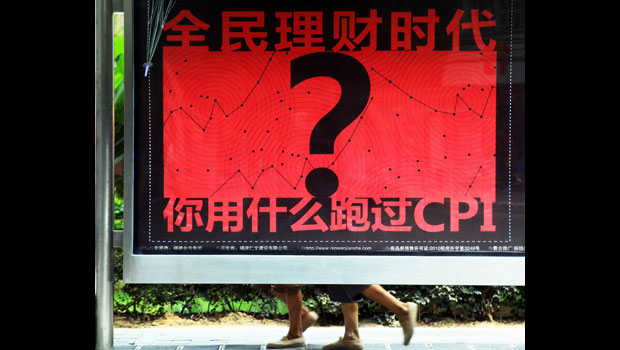Saturday's data, which comes just three days after China raised interest rates for the third time this year, may prove to be the near-term peak for China's inflation as global commodity prices cool, but most economists were still penciling in one more rate increase this year.
The consumer price index for June rose 6.4 percent from a year earlier, slightly above economists' forecasts for a 6.3 percent increase, with sharp rises recorded in food, consumer goods and property.
"We expect the central bank to raise interest rates once more in the fourth quarter, as it did last year, to help prevent inflationary pressures from spilling over into next year," said Qiao Yongyuan, an analyst at CEBM in Shanghai.
China's inflation data has become its most closely-watched indicator in recent months as investors look for clues on whether Beijing is about to shift its policy stance after nine months of steady tightening.
With the US and euro zone economies sluggish, China is one of the world's most powerful growth engines, and investors worry Beijing may jeopardize that by tightening policy too far.
But analysts who argued Beijing is likely to keep raising rates noted China's economy is only slowing gently and is still seen growing by more than 9 percent in 2011. Given that, they say stubborn inflation is the bigger risk right now.
China's inflation-adjusted interest rates are still negative. That encourages savers to funnel their money into other asset such as property instead of parking it in the bank, which can exacerbate price pressures, said Cui Yong, an economist with GF Securities in Beijing.
Cui expects China's central bank to raise rates once more this year.
A slim majority of analysts surveyed by Reuters this week thought China would raise rates once more this year before standing pat until June 2012.
Egg prices jumped a steep 23 percent on the back of a seasonal squeeze in supply.
Worryingly, there were signs that inflation pressures were spreading and may persist even if global commodity prices continue to fall. Non-food prices climbed 3 percent in their biggest jump since records began in 2002.
But given China has raised rates five times since October, alongside nine increases in the required reserve ratio for banks, some analysts said Beijing has already fired its pre-emptive shot at inflation.
"With a coming decline in headline inflation and rising concern on growth, we believe the chance for a further rate hike this year is very small," said Ting Lu, an economist at Bank of America-Merrill Lynch. He argued that investors could take June's inflation report as a sign that price pressures in China may be peaking sooner than thought, thereby weakening the case for more rate rises.
China must strike a delicate balance between sustaining powerful economic growth and ensuring inflation does not get out of hand. With global oil prices down about 17 percent since May 2, many economists think China's inflation will cool too.
Friday's disappointing US jobs report may have given Beijing even more cause for a pause. The rising unemployment rate suggests that the Federal Reserve will not be raising US rates from near zero any time soon, so China may be wary of tightening policy too much lest it draw more hot money inflows.
"This is very likely the peak in terms of CPI growth. I think the impetus for more tightening is getting pretty weak," said Ken Peng, an analyst at Citi in Beijing.










